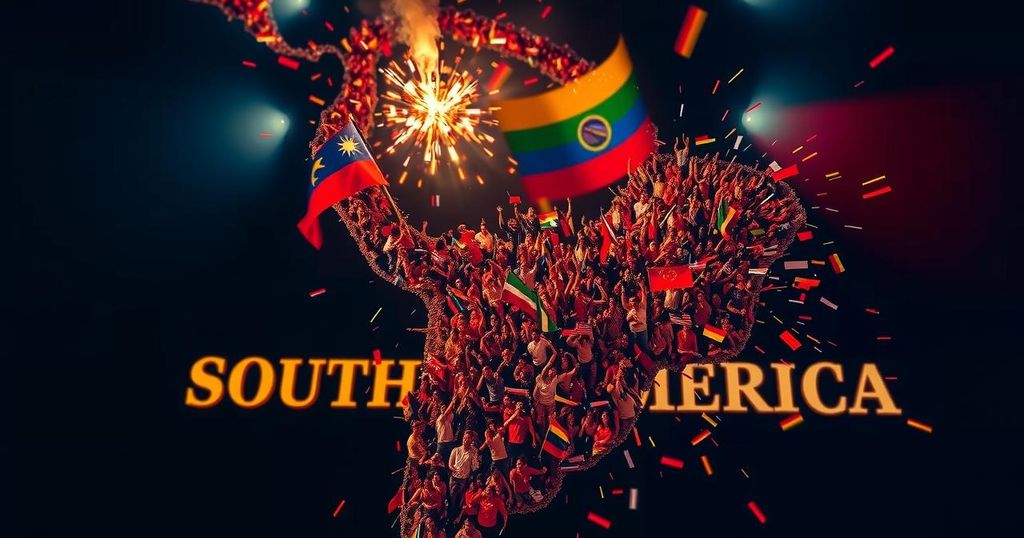Uruguay’s Political Shift: Orsi’s Victory and Broader Implications in Latin America
This article discusses the recent electoral victory of Uruguay’s Broad Front led by Yamandú Orsi over the conservative candidate Álvaro Delgado, significant sexual abuse allegations against Chilean President Gabriel Boric, and Brazil’s stronghold in South American football. Orsi’s victory highlights effective strategies for overcoming political divides, especially in rural areas, amidst rising global right-wing movements.
This edition of Latin America Weekly highlights significant political developments in Uruguay, Chile, and Brazil. In Uruguay, the progressive Broad Front successfully reclaimed the presidency with Yamandú Orsi’s victory over conservative Álvaro Delgado in a closely contested runoff. Orsi’s appeal to rural voters marked a notable turnaround after the party’s prior electoral losses in these regions. Meanwhile, Chile faces a scandal involving President Gabriel Boric, and Brazil maintains its dominance in South American football.
The political landscape in Latin America is dynamic, greatly influenced by shifting voter sentiments and emerging scandals. The Broad Front in Uruguay, which governed from 2004 until 2019, experienced a setback in the previous election cycle primarily due to a failure to connect with rural voters. The recent victory under newly elected President Yamandú Orsi signals a strategic resurgence, as he emphasizes inclusivity across urban and rural divides. In contrast, Chile is grappling with serious accusations against its president, while Brazil’s cultural and athletic prominence continues unabated.
In conclusion, the recent electoral victory of the Broad Front in Uruguay serves as a pivotal moment for left-wing parties globally, indicating potential strategies to combat right-wing populism. The political turmoil in Chile under President Gabriel Boric also underscores the challenges facing progressive leadership, while Brazil’s football prowess remains a source of national pride. Each of these narratives reflects broader themes of political evolution and social dynamics in Latin America.
Original Source: brazilian.report




Post Comment